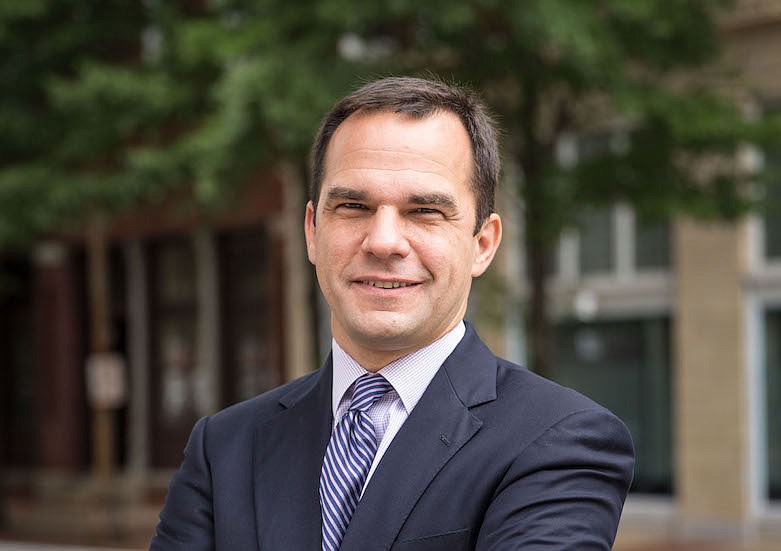I'm now four recessions into my career. Each one is different, and this is the first one associated with a health crisis. But in some ways, they follow a similar pattern - signs of strain followed by crisis, complacency and then extended trouble.
Think about the Great Recession: rising mortgage defaults for almost a year, a very dramatic few weeks in early September 2008, a period of quiet ending with a new cycle of bad news in March 2009, and finally, a struggle to restart growth around the globe for years.
Or the 2000-01 recession, starting with the dot-com bust; then 9/11; then the collapses of Enron, Worldcom and Global Crossing; then the changes in our lives from the war on terror.
Right now, our first job, obviously, is the safety of our employees, our communities, our families and ourselves.
Soon, for all of us who manage commercial organizations, our primary focus will shift to protecting liquidity, preserving financial sustainability and finding the best ways to have an impact in the world.
My career has been spent in finance jobs, so I have a money-oriented perspective. A lesson I have taken from previous recessions is that one of business leaders' most important responsibilities is demonstrating confidence and competence to capital partners. Yet this is a job that many executives fail at.
In times like this, how do you talk to your banker and investors? Here are six things that I have seen work:
Establish a sustainable whole-of-the-company decision-making process, communicate the process, and use it to make a living plan: Get all the right members of senior management in the room (either physically or online) regularly to discuss issues and solutions across the entire company. Get your arms around the most significant issues, set a direction that you can course-correct as needed and communicate both the direction "for now" and the expectation that you will adjust as conditions necessitate.
Identify the drivers that will indicate the need to change, monitor these drivers and course-correct the plan by relying on a steady decision-making process. Therefore, the decision-making process will be consistent even as the details of the plan itself change.
Quantify scenarios for the sake of your own decision-making and to communicate the range of possible outcomes.
Disciplined scenario thinking makes a difference in uncertain times. How much money could I lose? When could I run out of cash and why? How can I mitigate these risks and at what cost? What unexamined assumptions about the company's operations could prove false and cause trouble and for how long?
Now is the time, obviously, to manage the business with a financial projection model that includes a detailed cash forecast.
But it is also the time to develop a range of plausible scenarios about the future, quantify them and assess your resilience across all of them. The goal of scenario thinking is not to choose between several plans, but to have one living plan that can help you navigate the situation. Good scenario thinking supports a steady decision-making process and helps you prepare for and communicate the range of outcomes.
Show what you're already doing: We recently heard this suggestion from one banker: "If you can describe what the problem is, and ideally estimate how long it will last, that's good. Your bank can defer payments or go interest-only if they believe that you have your arms around the issues and are creditworthy." So, your words and actions need to communicate that you already have your arms around the issues, and that your judgment deserves support. Without delay, make the decisions that need to be made, and put them in context for your banker and investors.
Speak credibly: The ideal tone to strike should be humble, balanced and fact-based. Some investors call it "clinically realistic." Its main characteristic is that you don't add to the panic by coming across as either complacent or out of control. A private equity investor reminded us that investors and banks "will lose all confidence if their credits set their own hair on fire."
Equally, says another, calmly bring problems to light "so that they can be addressed now rather than remaining in the dark corners to grow mold and become deeper situations later on."
Ask for your capital partners' help, listen to them and adjust your plans: Remember that your investors, board directors and bankers have probably talked with more CEOs than you have, and that they can see patterns invisible to any one company. Make full use of the professional relationship between companies and capital partners to add to everyone's knowledge so that you all can learn and adjust.
Appreciate that bankers work for highly regulated companies, and that investors have portfolio-wide reserves and risks to manage. Understand that banks' and investors' own businesses change, so some who appear to be the right partner now might not always be, even if they say they want to keep working with you into the future. If your current capital partners are not the right ones to get you through the situation, respectfully start looking for new partners now.
When the issues are under control, let your banker and investors know you are ready to go on offense: Just as a moving bike is easier to balance on, a growing business is more stable. As quickly and candidly as possible, deal with the issues destabilizing you. Then start scanning for organic and acquisitive growth opportunities. Some opportunities will exist only momentarily. For example, as your peers are also assessing their liquidity needs in the midst of a crisis, maybe a business combination - if they know to think about it - is a better outcome than the recapitalization or operating changes they will otherwise need to do.
Frank Williamson, a former chief investment officer at Unum and partner in FourBridges Capital Advivors, is founder and CEO of Oaklyn Consulting in Chattnaooga.
